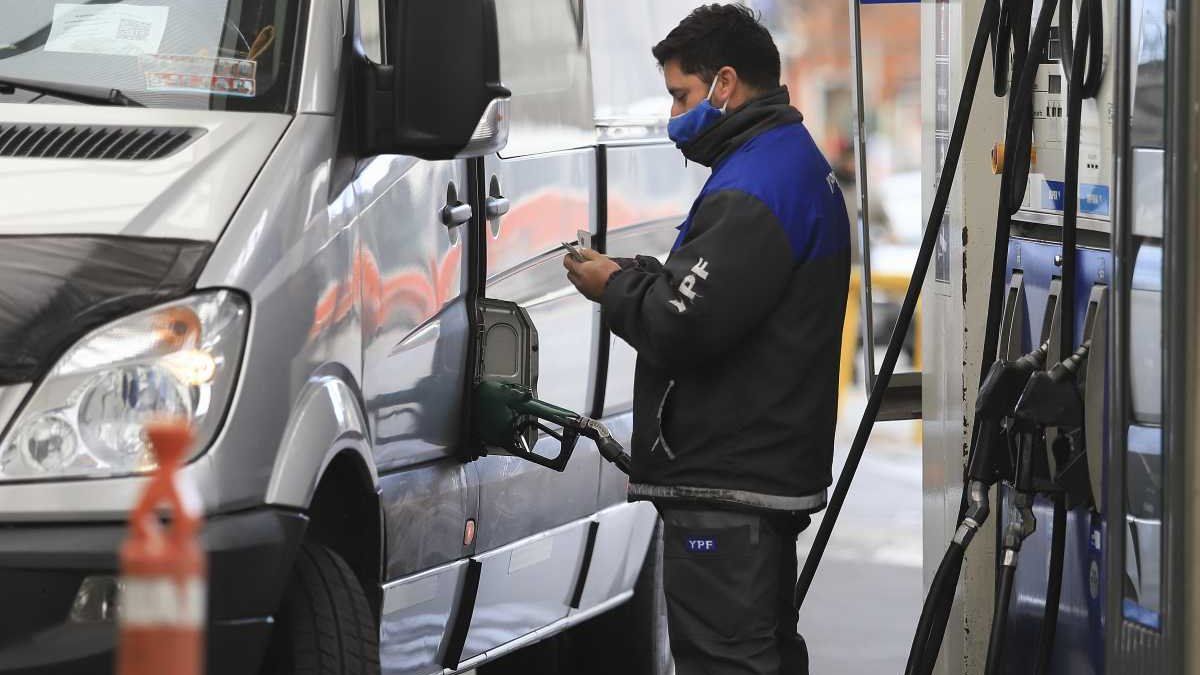The shortage of diesel is very marked in the north of the country and worsens in the border areas, where hundreds of stationers choose to sell the fuel to those with foreign license plates because they pay more. In these situations, the weakness of nationalism and the strength of capitalism are exposed, which actually begins in a much more underhanded way in the highest strata of politics: a country that could be self-sufficient in energy matters must dance to the tune of the context international, when the reality could be very different.
In the last hours, Ámbito spoke with different protagonists of the productive network, who explained the seriousness of the matter.
Santiago Carlucci, head of Transportistas Unidos de Argentina, assured that “Only one in five carriers manages to fuel with little or no retention.”
In much of the country, fuel is sold by quotas ranging from 20 to 100 liters, depending on the type of vehicle that requests it, and the price at the national level ranges from $138 to $220.
In Entre Rios, the President of the Federation of Rural Associations of the province (FARER), Jose Colombatto, explained that “in many places there is no diesel directly. They say it will be resolved in a week but we are complicated. There are people who are traveling to other provinces to look for fuel to finish the threshing. For example, in Hasenkamp corn threshing is stopped”.
in crespo, Mariela Gallinger, referring to the local Agrarian Federation, highlighted that “there is no fuel and if something appears it is overpriced and the producer cannot transfer it to any other link in the chain, therefore it must absorb it. You cannot be in a productive country going through these disasters”.
Also in that province, the rice sector suffers the consequences of the lack of fuel: Jorge Paoloni, producer and industrialist, explained that “it is difficult to buy fuel and if you get it, you have to pay a surcharge of between $20 or $30 per liter, but at normal prices nothing is sold”.
Fernándo Córdoba, a dairy farmer from the province of Santa Fe, explained that “to load fuel he had to travel 60 km from his field to the city of Rafaela. There is no diesel or gasoline at the stations, in fact some put up fences so that no one can enter. It’s all stopped.”
In the north of the country, Ezekiel Vedoya, agricultural producer in Jujuy and Salta explained that “the situation is serious throughout the region. There are many stations that do not have fuel and those that used to sell in bulk no longer do so, they only sell limited spaces for vans or vehicles. This not only affects the possibility of working but also distorts prices, because nobody knows how much fuel costs in the north”.
In the same area, Jose Luis Checa, leader of the Association of Producers of Fruit and Vegetables of the province of Salta, highlighted that the lack of diesel occurs at the beginning of the harvest and that last week six days passed until a service station brought diesel, but a few hours later there was not a drop left.
To the northeast, in Chaco, Martin Canteroadvisor on agricultural production, explained that “the small vehicles are charged $4,000, but in the productive areas where cotton is ending and about to start with corn, there is almost no diesel to take to the fields” .
The problems are aggravated in the border areas. In Formosa, Pánfilo Ayala, a banana producer, explained that “there are days when there is not a drop of diesel at the stations. And if there are those that do not have a flag, $250 per liter is charged for the premium variant and between $200 to $220 for common diesel. There are service stations that regulate sales at a maximum of $3,000 and do not want to sell in drums to take to the farm for the tractors. It is a daily pilgrimage to get diesel and it puts us to the limit in our productive activities”.
In Corrientes, the situation is similar. Raymond Meabea forestry producer, assured that “in the border areas with Brazil and Paraguay, everything is more critical because trucks circulating through Mercosur enter and demand diesel.”
The same thing happens in Missions. Over there, Christian Klingbeil, herbalist and tea grower explained that “there are companies that for three months have not been able to work normally. Producers have to line up for when there is fuel and wait to mobilize the tareferos. The fuel from Misiones is going to neighboring countries and it is very complicated for us. We are at the limit of having to stop the yerba mate harvest.”
Neither the carriers nor the producers know how long they will be able to sustain the activities. Both sectors demand that the Government and the fuel suppliers reach an agreement to normalize the provision of one of the fundamental inputs for the countryside, industry and logistics.
Source: Ambito




